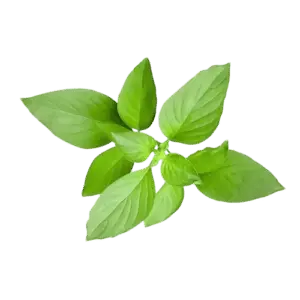Home » Kitchen » Plant Pod » Plant Pod Plant List » Basil Lemon
Lemon Basil
Lemon Tea

Lemon basil comes from a cross between African basil and common basil, and is widely grown in northeastern Africa and southern Asia. Popular for its strong lemon scent, lemon basil is often found in Lao, Persian, Arabian, Indonesian and Thai cuisine. Native to India and ancient Persia, basil has a long history as one of the most revered of herbs. Ancient legends give basil a strong religious connection, stating that it possesses healing powers. In many cultures basil is a symbol of love, and given as a token of affection or engagement; other meanings include protection and truth. In Greek and Roman cultures, however, basil represented hate and misfortune; because of this, gardeners would often shout abuses at their plants to help them grow. It seems that no one could agree on the properties of basil, with divided opinions on whether it had medical benefits or whether it contained poison. Since English royalty preferred basil and used it for both culinary and cosmetic purposes, chefs sometimes call it “the king of herbs.” In addition to being popular with the ruling class, basil was commonly used throughout England and loved for its scent; many people included it in their gardens, added it to their bouquets, and used it to freshen the air in their houses. Medicinally, oil of basil is often used in treatments as diverse as depression and anxiety, the common cold, a cough or sore throat, or insect bites and stings. Medicinal doses of basil are unsafe for pregnant women, though culinary use is fine
Use as herb in food dishes like pastas, noodles and pizza’s
As tea
Add thinly sliced fresh basil leaves to your English or black tea.
Cover and steep for 4 minutes. Strain, discarding basil. Serve immediately.
Lemon Basil is a great source of Vitamin K. This Vitamin assists the body in faster wound healing. The herb also provides considerable magnesium, iron, manganese, copper, calcium, and Vitamin C to the body.
Leave one seedling to grow per plant pod and these will sprout within 7-14 days and will be ready to harvest as it reaches a desirable size. Lemon Basil grows best at temperatures of 17°-23°.
Basil leaves can be harvested as soon as they reach a height of 15 -20 cm. The best time to harvest the leaves is in the morning after the dew dries. After the plant is established, harvesting often actually improves production; once the flowers develop, however, the leaves grow bitter to the taste. Remove single leaves or parts of a stem as needed, taking care to leave at least three sets of leaves on the length of the stem for healthy growth. When harvesting, pinch off the stem directly above the next set of leaves. Fresh basil will keep for several days at room temperature, with the stems in a glass of water; if refrigerated, it tends to wilt and turn brown. Basil also freezes and dries well. Since the water content of basil is very high and it can mold easily, the best method for drying is a dehydrator, an oven, or a similar dry, warm location.
Plant in rich, moist and well-drained full sun
